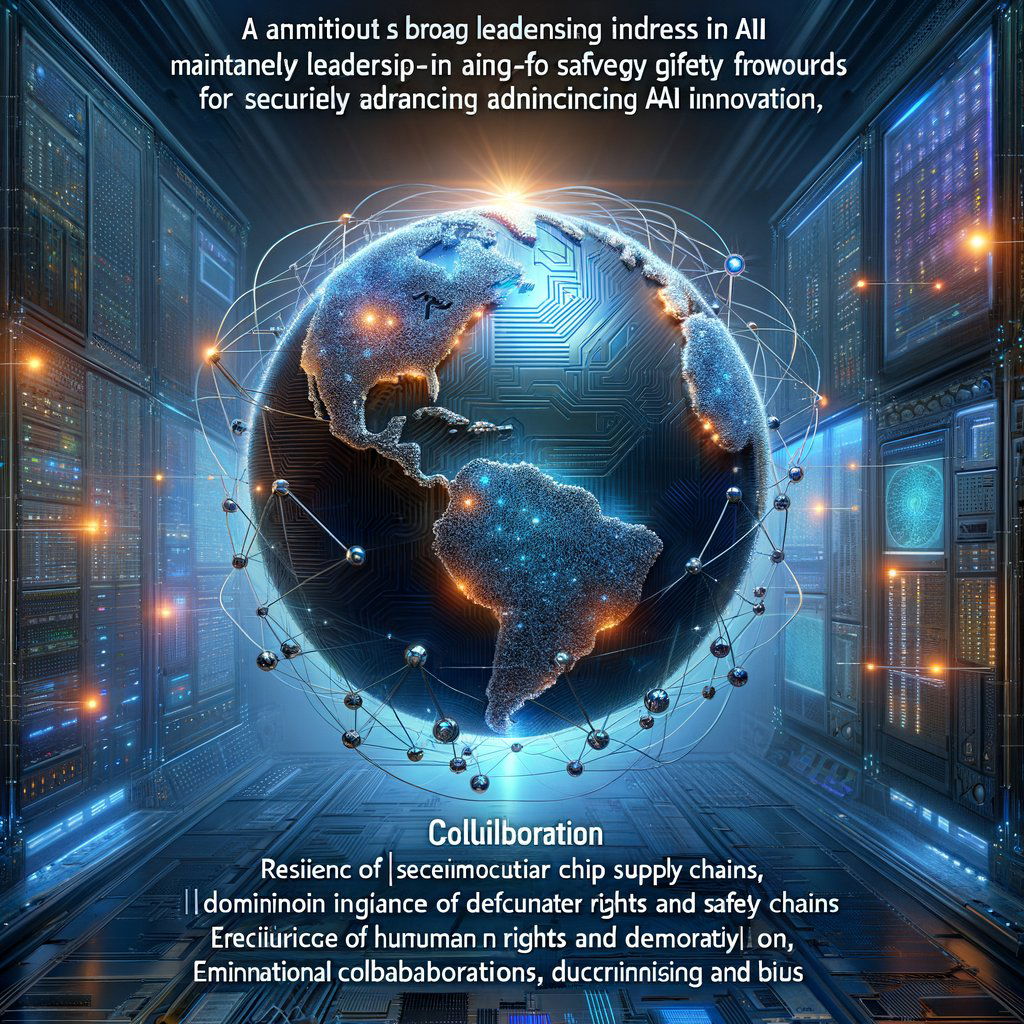Image created by AI
U.S. Unveils National Strategy to Maintain Leadership in the Global AI Race
In an ambitious move to address the rapidly evolving landscape of Artificial Intelligence (AI), President Joe Biden has unveiled a broad strategy aimed at ensuring the United States remains a global leader in the development and utilization of AI, while adhering to core values of rights and privacy. The White House's release of the first-ever AI-focused National Security Memorandum (NSM) marks a significant commitment to integrating AI in national security in a principled fashion.
The NSM provides a detailed policy framework under which federal agencies are to advance AI innovation securely and reliably. The core directives center on enhancing the resilience of semiconductor chip supply chains—a critical component of AI technology—while integrating AI strategically across government operations and strengthening intelligence on international activities potentially jeopardizing US leadership in the realm of AI.
Reflecting the ethical and safety concerns associated with AI, the memorandum places a high priority on safeguarding human rights and democratic principles. The careful calibration of AI systems to eliminate risks such as privacy violations, bias, discrimination, and other potential impacts on individual and group safety underscores the administration's holistic approach to AI governance.
To bolster these initiatives, the Biden administration is not only looking inward but also establishing international collaborations. The memorandum calls for concerted efforts with key allies to shape the global norms around AI. This is in line with the administration's broader strategy to harness collective strength in fostering AI development that is consistent with international legal standards, human rights protections, and fundamental liberties.
The push for a secure and ethical AI landscape dovetails with earlier administrative actions taken by President Biden. This includes an executive order aimed at containing AI's risks to various stakeholders, reflecting growing concerns over the intersection of technology, civil rights, and national security.
The administration's stance has been met with both support and calls for more definitive action. Advocacy groups and civil society organizations have openly expressed the need for more robust and transparent mechanisms to track and regulate AI deployment across governmental bodies. These concerns underscore the multifaceted challenge of employing AI without compromising ethical standards and civil liberties.
The upcoming global safety summit in San Francisco represents a pivotal moment to fortify the regulatory regime surrounding AI. The event promises to be a significant platform for international leaders and policymakers to chart the path forward in managing AI's vast potentials and its unintended consequences.
This strategy comes at a time of heightened awareness of the transformative power of AI, which includes generative technologies capable of producing realistic text, imagery, and media. The dual-edged nature of such advances entails an excitement for progress alongside apprehension regarding the misuse of AI and the existential questions it poses for humanity.
The White House's AI NSM forms a cornerstone in a multipronged effort to navigate these complexities, seeking to balance formidable advantage in a strategic domain with the imperatives of global cooperation and fundamental rights.










